Philosophy and Psychoanalysis
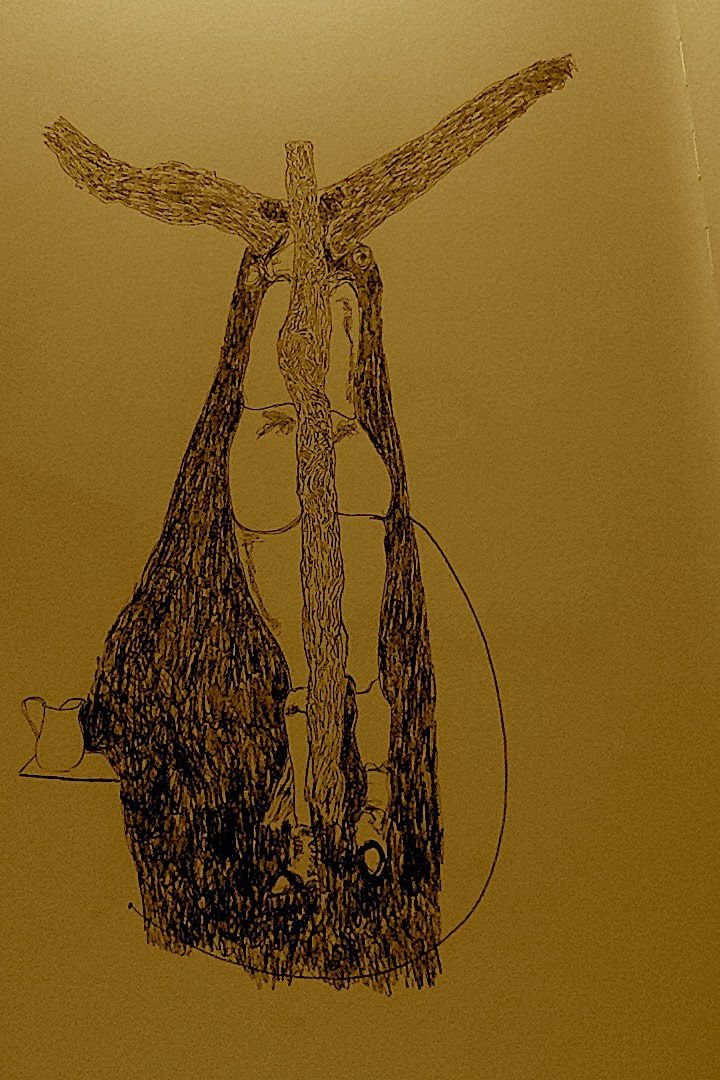
Interview by Richard Marshall

'What surprises many an analysand is that, after a successful analysis, they often recall very little of the analytic process or the discoveries they made along the way. In fact they will – unlike the characters Woody Allen scripts for himself – altogether be thinking rather less about themselves than they did previously. Instead they find themselves enjoying less inhibited and less preoccupied relations with others: they’ve become less neurotic.'
'Sartre wondered too whether we could without paradox be said to repress feelings out of awareness – since it’s only if we know what they are that we can know we don’t want to have them! As these traditions have developed it, we do better to think of knowing ourselves not as a matter of a recovered inner cognition of this inner domain, a perception voiced in reports of our judgments about what we’ve found within, but instead as involving the recovery of our expressive lives– i.e. as involving the ability not to speak about, but to speak from, our feelings and wishes.'
'As well as making congenial comparisons, Wittgenstein was often critical of Freud. I see this not as vacillation but as responding to different aspects of Freud’s work. (Even today one finds books with titles like ‘Why Freud Was Wrong’ – as if ‘Freud’ was the name of a single hypothesis rather than of a man with a great many ideas, some truly brilliant, some rather daft.) He argued against the idea that Freud had ‘discovered the unconscious’, instead suggesting (rather implausibly) that he had really just invented a new notation for the recognizable facts of hysterical and neurotic and dreaming life.'
Richard Gipps works at the interface between philosophy and psychoanalysis. Here he discusses knowing thyself, whether philosophy and psychoanalysis are both interested in the same notions of truth and truthfulness, dynamic consciousness, Wittgenstein and psychoanalysis, Wittgensteinian distinctions, Freud and religion, and the Taylor vs Forstader legal decision.
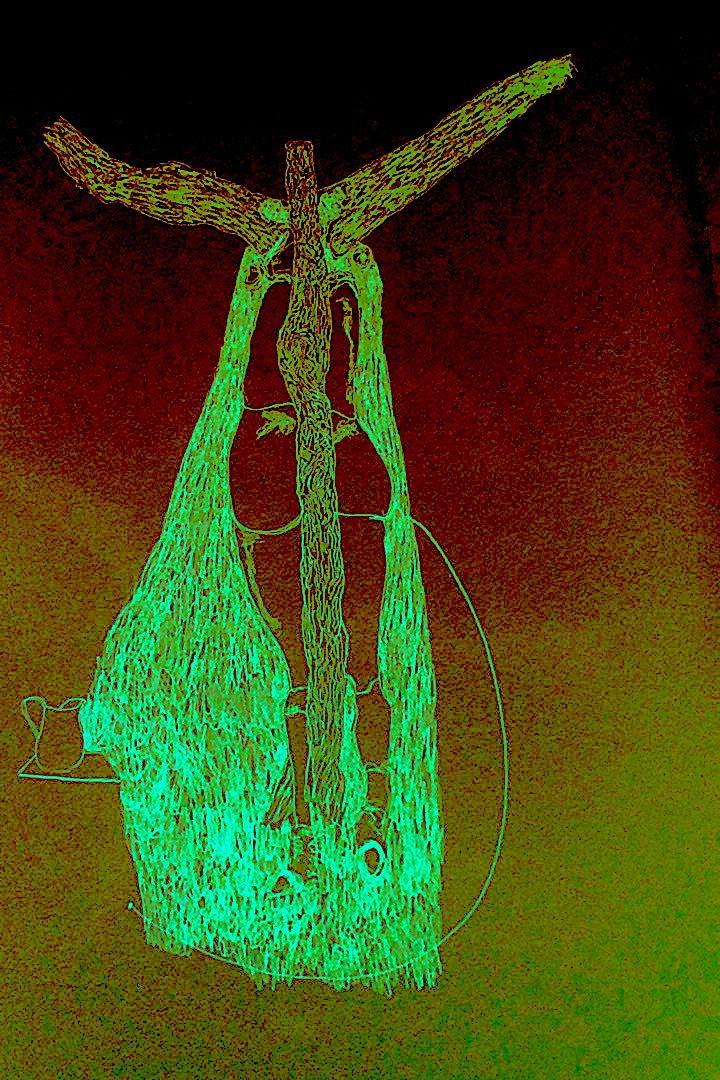
3:16: What made you become a philosopher?
Richard Gipps: When I was little I tried to compile a catalogue of all the world’s knowledge! When I found out just how vast the world was, I gave up that ambition – and instead tried to develop abstract and general understanding. Then as a teenager I became somewhat schizoid – which is to say, over-identified with my reflective mind rather than my body, cut off from my emotions, from others, and from the world around me. Philosophy was an inevitable part of this schizoid disposition, but later it became a small part of the cure. Thus it was reading Ryle’s ‘The Concept of Mind’ (which constantly stresses the internal relatedness of mental and corporeal/behaviouralconcepts) that led me to understand that I probably wasn’t in fact some disembodied mind that merely used its body as a convenient transportation device! And reading Wittgenstein’s ‘Philosophical Investigations’ helped me see a way past such philosophical questions as can seem so pressing and yet so irresoluble if your starting point is one of being a self-contained ‘inner’ mind that somehow needs to achieve access to a now ‘outer’ world and to the now hidden-away minds of others. This new way was dissolutive rather than theory-building: rather than answering the aforementioned epistemological questions it instead involved exposing the questions’ own tacit and misguided presuppositions concerning how psychological discourse works. As I matured – as a philosopher and as a chap – and became better at tolerating my ignorance and insecurity, I became able to relinquish the ambition of abstract and utterly general understanding, and to instead try to understand that which puzzles me in all its particularity.
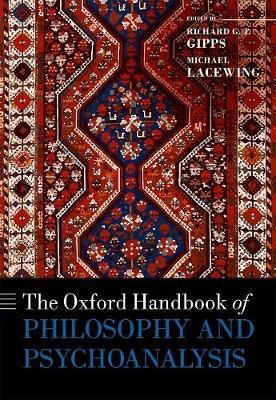
3:16: You’re interested in the connection between psychoanalysis and philosophy. One starting point is to try and understand the Delphic command: ‘Know thyself.’ How do you think this is best understood? Is it about a particular epistemic attitude or about avoiding self-deception?
RG: No doubt there are many useful facts to learn about yourself – for example, I now know not to do the washing up in the morning, since at that time of day I’m clumsy and likely to break something. However I rather doubt that in this I would’ve made the Delphic Oracle proud. Truly ‘knowing oneself’, as I see it, instead has largely to do with undoing what, since Freud, we call our ‘defence mechanisms’. Knowing oneself is often not so much about introspectively discovering facts about oneself, but instead about relinquishing self-thwarting habits which place a kink in our world-relations. As St Augustine put it in 417 AD: when the mind ‘is ordered to know itself, let it not seek itself as though withdrawn from itself, but let it withdraw what it has added to itself.’ I may well come to know something about myself – that I run certain defences, have certain repressed feelings, etc. – but this knowledge will most likely not, if it remains only of a ‘knowing about’ form, be truly mutative. What I need instead of factual knowing is to relinquish my short-termist, anxiety-avoiding tendencies which stop me truly becoming who I latently am. Having achieved this I can ‘body forth’ spontaneously, enjoying direct and emotionally alive relations with others - rather than be caught up in some self-stultifying reflexive self-relation. Knowing oneself is also about becoming more what we call ‘self-possessed’ – a term which indexes not some relation of oneself to oneself, but rather the absence of certain self-thwarting relations to others. She who isn’t self-possessed is inclined to unthinkingly go along with the preferences and values of others (real and imaginary); she doesn’t know how to follow the maxim ‘to thine own self be true’. Becoming self-possessed is a lifetime’s work, and involves a lot of what psychoanalysts call disidentifying from the superego – i.e. learning to spot and challenge and dismantle the fear-derived inner critical voice which disables healthy assertiveness.
Sometimes people think that when they leave a psychoanalytic treatment they will have learned all sorts of things about themselves. What surprises many an analysand is that, after a successful analysis, they often recall very little of the analytic process or the discoveries they made along the way. In fact they will – unlike the characters Woody Allen scripts for himself – altogether be thinking rather less about themselves than they did previously. Instead they find themselves enjoying less inhibited and less preoccupied relations with others: they’ve become less neurotic.
3:16: Both philosophy and psychoanalysis are concerned with truth and truthfulness. Are their concerns identical and if not what are the salient differences?
RG: Much here will turn on what we include under ‘philosophy’. Is it the personal sort that one lives by - is it part of my philosophy that, to borrow from Jordan Peterson, before I try to change the world I should tidy my room? - or is it instead the discipline of achieving clarity regarding complex theoretical matters? On the one hand we’ve the development of well-formed, articulate, values which function as regulative ideals for one’s life. On the other we have such matters as the capacity to, say, keep track of the meanings of the terms appearing in deductive arguments to ensure no invalid inferences are drawn.
A useful distinction we can make, one which parallels that between knowing things about oneself and knowing thyself simpliciter, is between factual truth and sincerity. The former involves the accurate representation of this or that; the latter has to do with speaking straight from the heart without self-censorship or dissimulation. I think it’s fair to say that whilst philosophers may have personal philosophies of honesty, and whilst they may have an intellectual interest in understanding honesty, it’s no distinctive part of philosophy considered as an academic discipline to work on one’s own truthfulness. Psychoanalysis, by contrast, has as its fundamental rule the instruction to try to be honest and share whatever is actually right now on one’s mind. (As anyone who’s been on the couch will know, this is surprisingly hard to achieve.)
Having said that, there are important exceptions. Thus Wittgenstein wrote that ‘What makes a subject difficult to understand – if it is significant, important – is not that some special instruction about abstruse things is necessary to understand it. Rather it is the contrast between the understanding of the subject and what most people want to see. … What has to be overcome is not a difficulty of the intellect, but of the will. … Work on philosophy is … actually more a kind of work on oneself.’ And Stanley Cavell, an important interpreter of Wittgenstein, wrote on the importance of trying to ‘mean what we say’ in philosophy. He had in mind that our language is not ours to bend to our will. Instead we only mean anything by our words because our language has a much larger life and pattern than anything we conjure up within our own heads. This is why we can – especially when doing philosophy – unwittingly say things that don’t make sense. Such nonsense is often disguised from us, and it’s striking how often it serves our interests! Our task, then, on this understanding of what it is to do philosophy, is in fact all about trying to be honest with ourselves and to make ourselves truly accountable in our word use.
I should like to comment on a significant further analogy between our philosophical and psychoanalytical concerns with truth and truthfulness. This has to do with (what I see as) the fact that an extraordinary amount of both philosophical and personal disturbance stems from, or is at least bolstered by, alienation. On the side of philosophy, think on such ethical doctrines as would have it that our actions are to be judged morally good or bad solely on the basis of the value of their objectively assayableeffects. Accepting such doctrines results in our finding ourselves unable to do justice even to basic moral maxims such as Socrates’ notion that ‘doing wrong is worse than suffering it’. We lose, that is, our sense of the moral significance of it being our agency that we’re here concerned with. And having become thus alienated from our own personal moral life, we can all too easily start to engage in moral theorizing, trying through depersonalized ratiocination to solve endless problems about the ethical ‘utility’ of our acts (I borrow this objection to utilitarianism from Anselm Müller). Or think on the skeptical problematics that inexorably arise once we take our minds to somehow reside inside or behind our bodies. Since your smile is (on this picture) now not itself an expressive embodiment – part of the very ‘flesh’ if you like – of your happiness, I’m now left needing to make hopefully accurate inferences from my awareness of your bodily comportments to ‘mental states’ that supposedly lie within. Lumbered with that predicament it’s no surprise that now I’ll either have to deploy some kind of ‘folk theory’ or engage in some kind of imaginative ‘projection’ or ‘simulation’ to (pretend thereby to) reaquaint myself with the fact of your mindedness (Wittgenstein and Merleau-Ponty write well on this). Or consider such understandings of thought as trash its immanence within discourse and action, instead treating it as a separate inner stream behind the words. Or such theories of perception as alienate us from our proximal environment, saddling us with the need for ‘images’ or ‘representations’ which function for us as proxies, leaving us now with skeptical problematics about whether there even really is something called an ‘external world’ behind them. Or such understandings of necessary truths which, rather than seeing them as our own living rules of language, instead construes them as descriptions of unfathomable impersonal superstructures of the universe. The list goes on and on. The claim I here wish to register is that many of the apparently intractable questions of philosophy, questions which articulate skeptical problematics and inspire the creation of complex theoretical attempts to answer them, only arise once we build a tacitly alienated conception of human life (morals, language, thought, emotion) into our premises.
Similarly, it seems to me, many of the human concerns which bring us to psychotherapy result in or from an alienation of ourselves from our worlds, our feelings, our life with language, our bodies. Thus someone with delusions or obsessions has lost that kind of trust which normally provides an originary engagement of self and world – what the existential phenomenologists sometimes talk of in terms of the ‘originary transcendence’ of that self which is always-already around-and-about in its world. Or consider the kind of derealisation suffered by my schizoid adolescent self as described above: it would often seem to me that the world around me surely wasn’t “real”. And yet it wasn’t as if I’d any understanding of what the word “real” could even mean other than in terms of the sundry paradigms of real things in precisely that very world about me. What however had happened was that I’d become fundamentally alienated from the world, and so the genuine coherence of my thought was at times breaking down. Or, for that matter, consider all the ways in which neurotic disturbances involve us in deploying unconscious defences which alienate us both from our own feelings and from those significant others to whom we normally relate in and through our feelings. In all such cases we’re unable to know ourselves, and unable to speak truthfully. Perhaps we instead become obsessed by searching for facts – empirical truths – which can, we hope, play a substitutive cognizable grounding for what has been lost when we lose our more fundamental immanence in our bodies and worlds.
A further interesting parallel between philosophy and psychoanalysis concerns the results of a successful treatment. In both cases the original intractable questions or problems one had are often shown up as themselves unreal, the misbegotten product of latent assumptions which, when pressed, dissolve into the patent nonsense they really are. A consequence of this, at least in my own experience of both philosophical thought and being on the couch, is that it can be hard to even grasp what it really was that was bothering one to start with. The problems now fade away like dreams which, when one was dreaming them, seemed utterly compelling, but which now, in the light of day, fade to nothing.
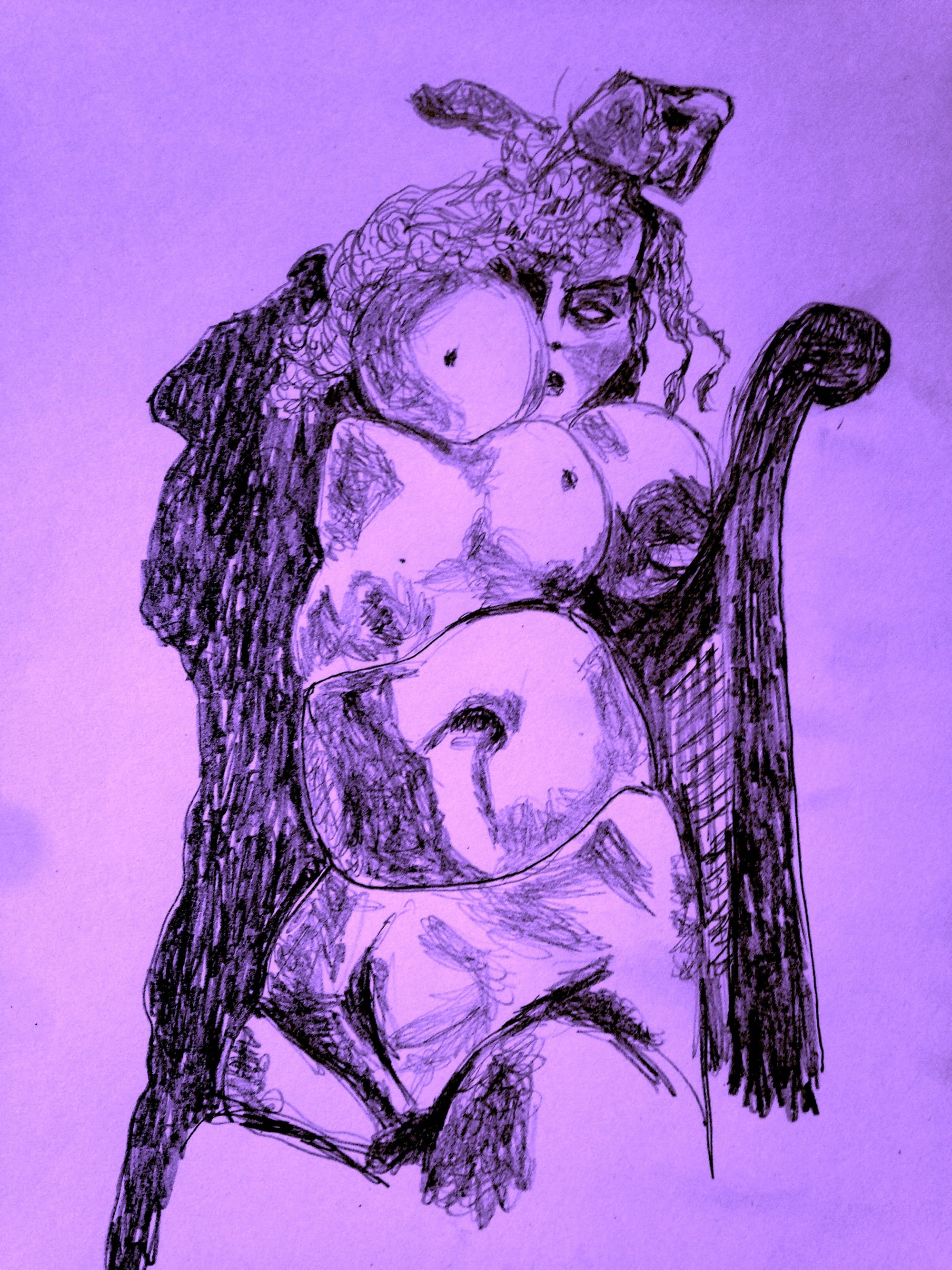
3:16: There have been more than one strand of philosophical engagement with psychoanalysis in the last century and this. You’ve identified at least seven! Could you sketch for us what these different engagements were about so that we get an overview of the contours of this area of philosophical thinking.
RG: This is a huge question! Here I will just outline four strands. All concern how we should reflectively understand what it is to have a dynamic unconscious.
One strand is the ‘is psychoanalysis a pseudo-science?’ question which characterised the so-called ‘Freud wars’. ‘Does psychoanalysis proffer hypotheses that can be meaningfully disconfirmed?’ was an issue that concerns analytical philosophers like Karl Popper and Frank Cioffi (who tended to answer in the negative). By contrast, Adolf Grünbaum thought both that psychoanalytic theories of the effect of unconscious motives on behaviour were testable, and that it utterly failed to test them. (Grünbaum, however, supposed that explanations by reference to motives were causal explanations which, as such, should be tested by seeing whether causes of type A (motive) typically or always lead to outcomes of type B (behaviour). However it’s hard to see how this requirement constitutes a reasonable demand on explanations of behaviour by reference to motives – whether these motives are conscious or unconscious.)
Another comes both from the Wittgensteinian tradition and from the existential-phenomenological tradition of Heidegger, Sartre, and Merleau-Ponty. The way Freud writes about the unconscious can make it seem like a hidden place at the back or base of your mind, somewhere too dark for you to inwardly see. But this idea of the mind – a fortiori of the unconscious mind – as an inner domain was radically challenged by these traditions which instead stressed mind’s fundamental immanence within our active and interactive corporeal engagements with the world and with others. Furthermore, the idea of genuinely having a desire or emotion or thought, but not knowing what it is, has always struck the critics of psychoanalysis as implausible. Sartre wondered too whether we could without paradox be said to repress feelings out of awareness – since it’s only if we know what they are that we can know we don’t want to have them! As these traditions have developed it, we do better to think of knowing ourselves not as a matter of a recovered inner cognition of this inner domain, a perception voiced in reports of our judgments about what we’ve found within, but instead as involving the recovery of our expressive lives– i.e. as involving the ability not to speak about, but to speak from, our feelings and wishes.
A third, related, strand has been concerned with developing an adequate reflective understanding of the nature of psychoanalytic concepts. It’s easy to take certain psychological concepts – including psychoanalytical concepts – rather concretely, in the sense that we might unreflectively model the kind of reality enjoyed by psychological phenomena on that enjoyed by physical states and processes, and model our acquaintance or alienation from aspects of our own minds on our perceptual acquaintance with the world about us. It is arguable that both psychoanalysts from Freud onwards and their critics have been involved in such (self-) misunderstandings. So the question – to rather over-simplify it – is that if ‘projection’, ‘splitting’, ‘internal objects’, ‘unconscious phantasy’, ‘repression’, ‘id impulses’, ‘the superego’, ‘wish-fulfillment’, ‘psychological symbolism’ etc. are not helpfully understood as the names of processes and entities – at least if not construed on the model of physical processes and physical entities – how should we understand them? One answer might be that they refer to certain recognizable patternings of our emotional and behavioral dispositions and responses.
Finally I’d like to mention philosophy’s engagement with other aspects of psychoanalysis’s ‘anthropology’ – i.e. of its fundamental vision of what it is to be a human being living a human life. Unlike a lot of self-styled scientific psychology, psychoanalysis has held tightly to an understanding of human life as fundamentally to do with our subjective preoccupations – with erotic desire and social recognition, with our shame, guilt and contrition, power and humiliation, with our hopes and our histories, lovableness and loneliness, lovesickness and consuming hatreds, shyness and courage, envy, resentment and gratitude, intense secret passions, idealising delights, the peculiarly vaunted or denigrated status for us of our significant attachment figures, our sexual adequacy and inadequacy, fateful repetitions, with our expressions and deeds which threaten to betray us, and all of our inner conflicts, moodiness, anxieties, excitements, self-punishments, self-defeating behaviors, irrational impulses, and bodge-job forms of self-management. By maintaining such a focus on the inner life – and here I mean ‘inner’ in the sense of the life just described rather than in a metaphysical sense of a hidden domain only contingently related with our active and expressive lives – philosophy and psychoanalysis can be allies in the project of retrieving essential aspects of our nature which get disappeared when rationalistic and scientistic visions of human life become culturally ascendant. Philosophy, I would say, has much to learn from post-Kleinian psychoanalysis’s development of a rich ‘aesthetic’ model of human life. That model considers the emotional shifts that obtain in our engagement with painting, literature, poetry, and music, and the capacity of such art work and aesthetic experience to enable the representation and experiencing of otherwise unreachable or intolerable meaning. Psychoanalysis, on the other hand, arguably has much to learn from philosophy in recovering a sense of what it is to live in a morally alive manner. For too long psychoanalysis has been thwarted by a conception of morality as rooted in fear, prohibition and self-stymieing (i.e. in ‘the superego’) – rather than as rooted in love and as making for human flourishing at its fullest.
3:16: Wittgenstein had a strange relationship with psychoanalysis didn’t he? At times he sounds like he dismisses it but there are other things he says that seem sympathetic. What is your understanding of his relationship?
RG: By way of background: the Wittgenstein and Freud families were contemporaneous Jewish inhabitants of Vienna; Wittgenstein’s nephew and sister were treated by Freud; and Wittgenstein read a few of Freud’s classic earlier writings. He sometimes styled himself an enthusiastic ‘disciple of Freud’, although I don’t think it’s easy to say in what this discipleship consisted. Perhaps it has to do mainly in the drawing of analogies between psychoanalytic treatment and the philosophical method Wittgenstein developed. As he experienced and understood them, philosophical problems were not narrowly intellectual but more broadly existential, giving rise inter alia to emotional disquiet. His aim was to emancipate himself from such struggles by exposing and undoing a hidden assumption or ‘simile in the unconscious’ or ‘picture that held us captive’, and (as I reported above) he recognised that undoing such conceptual assumptions also involved a struggle with the will – a struggle against what we want to believe. The analogy we may draw here is with the psychoanalytic patient who goes to treatment aware of his presenting problems but unaware of the motivated yet misery-making assumptions he’s tacitly making about the people in his life.
As well as making congenial comparisons, Wittgenstein was often critical of Freud. I see this not as vacillation but as responding to different aspects of Freud’s work. (Even today one finds books with titles like ‘Why Freud Was Wrong’ – as if ‘Freud’ was the name of a single hypothesis rather than of a man with a great many ideas, some truly brilliant, some rather daft.) He argued against the idea that Freud had ‘discovered the unconscious’, instead suggesting (rather implausibly) that he had really just invented a new notation for the recognizable facts of hysterical and neurotic and dreaming life. He was allergic to the narrowly sexual and wish-fulfilling interpretations Freud offered of dreams, and suspicious of the charm such reductive schemes had on us. Finally, he (rather plausibly) accused Freud of conflating ‘reasons and causes’ – i.e. of confusedly using a patient’s assent to an interpretation as criterial for its truth (as we would do when ratifying claims about our reasons), whilst presenting the interpretation as discerning a causal truth (which as such should be independent of whatever we affirm to be the case).
3:16: You draw on the Wittgensteinian distinction between ‘grammar’ and ‘fact’, make a distinction between the ‘acknowledgement’ and the ‘explanation’ of psychological matters, and furthermore contrast ‘revelation’ with ‘representation’. Can you explain what makes these useful distinctions?
RG: Psychologists are sometimes apt to frame their skepticism about psychoanalysis in terms like ‘What is the evidence for the existence of the id / the superego / repression / the unconscious / etc. ?’ Likewise, atheists are sometimes apt to frame their skepticism about religious matters by asking questions like ‘What evidence is there that God actually exists rather than being a figment of your imagination?’ As I see it, such questions are rather naïve since, without a moment’s justification, they presuppose that words like ‘id’ or ‘God’ are to enjoy their meaning and perform their semantic duty by referring to invisible objects,to phenomena that may or may not exist, to objects that can supposedly be made sense of in abstraction from their characteristic manifestations, objects to which inferences may be made on the basis of an allegedly more proximal encounter with those manifestations, objects that can be referenced in explanations ofwhythings are the way they are.
Now perhaps some people do use words like ‘id’ or ‘God’ that way. Perhaps they experience Geoff getting angry, or Marge having a miraculous recovery from the flu, and hypothesise that an invisible entity – Geoff’s id or Marge’s God – are what’s responsible. I propose, however, that this fails to respect the way that central psychoanalytic concepts actually work. (It is not unusual for people to be able to enjoy a competent use of a domain of concepts whilst being hopeless at understanding how they work. Thus as St Augustine pointed out, we all know how to use the word ‘time’ (‘do we have time for a quick cup of coffee?’) but are hopeless at defining it. Or we use words like ‘think’ perfectly well (‘I don’t think we do have time’) but then get into a muddle (and start to imagine that ‘thinking’ must be the name of some or other inner mental or neurological process) when theorizing that use.) For rather than hypothesizing an inner domain hiding behind manifest behaviour, it seems to me that psychoanalytic concepts typically disclose a particular kind of order within that intrinsically meaningful, contextually-situated behaviour itself.
One of the things that psychoanalytic concepts are good at marking for us are our lived experiences of fragmented meaning. Everyday psychological terms (‘belief’, ‘wish’, ‘desire’, ‘hope’) index what obtains within a holistic rationally structured pattern in which are situated all together our avowals, actions, reflections, perceptions, etc. Yet a galling amount of our life is not structured thus. Consider: Freud tells of a man who – whilst standing inside, hypnotized and instructed to do precisely this – opens an umbrella for the returning doctor and hands it to him. When asked why the ‘patient is clearly embarrassed. He makes some lame remark such as ‘I only thought, doctor, as it’s raining outside you’d open your umbrella in the room before you went out’. Freud tells us that ‘It is clear to us spectators that he’s in ignorance of his real motive. We, however, know what it is, for we were present when the suggestion was made to him which he’s now carrying out’. This man is now doing things in an organized way but, in a manner that would destroy the very intelligibility of our lives were it to become predominant, has nothing coherent to say about what he’s doing (so is forced to rationalize). Or consider: Heather is, unbeknownst to her, in an abusive marriage. She suffers her eccentric husband’s emotional neglect and caustic put-downs on a daily basis, but rather than feel hurt or angry she shuts down and develops a low sense of her own worth which does something to make her abuse appear reasonable. However she then becomes strangely clumsy when dusting around her husband’s prize collection of porcelain pigs, leading to several breakages. This is just one of several actions that you or I – but not Heather – would describe as covertly angry. Again, what we see here is a dissociation of the typical unity of action (breaking the damn pigs) and avowal (saying what she feels and giving reasons for her actions).
The psychoanalytic vision is one which, amongst other things, helps us get our eyes in to just such partial patterns in our intentional lives. It offers us a new language, one which dignifies as carrying their own kind of meaning (unconscious meaning) such acts as are nevertheless not accompanied by any avowal of motive. One way of thinking of this – the way I’ve been militating against in this interview – has it that here we have to do with meaning as normal, but meaning which has just been somehow hidden away from the subject’s own purview. The alternative conception for which I’m here militating has it instead that unconscious meaning is an alternative form of sense, the attributions of which meaning are governed by their own distinctive rules. It’s an aliveness to this form of meaning which constitutes what I (following Thomas Mann) call the psychoanalytic revelation. This is a revelation of that which is simply invisible if we stick to seeing through the lens of everyday psychology. Freud was inclined to think he had, with his concept of the ‘unconscious motive’, given us an explanation as to why the above-described man opened the umbrella, I suggest instead that the concept of ‘unconscious motive’ instead simply offers acknowledgement to the character of such facts. Whilst Wittgenstein suggested that Freud merely offered us a new notation for that which could readily be articulated otherwise, I suggest that – to borrow two further Wittgensteinian terms – what Freud really did was invent some new ‘language-games’ with their own rules or ‘grammar’.
To return now to ‘God’ and ‘the id’, the question we do well to ask is ‘What are the language-games that are played with these terms, and what is their distinctive grammar?’ Thinking in this way we might, when it comes to matters theological, start to pay rather less attention to quasi-scientific questions about how the universe came into being or just how Marge got over that terrible illness, and instead start to think on what it means to see life under the aspect of a gift, or on what words are needed to awaken and articulate our sense of the world’s wondrousness or our gratitude for Marge’s recovery, or on articulating what it is we do when we relinquish our fear-inspired fantasies of invulnerable self-reliance. God-speak becomes now a framework within which we live our lives, rather than constituting a set of fact-speaking moves within an alternative framework (derived from everyday empirical observation or science). ‘God is love’ or ‘repressed emotions linger in the unconscious’ may now be considered ‘grammatical’ rather than ‘factual’ statements: they articulate our understanding of the meaning of our words ‘God’ and ‘repressed emotions’ rather than stating true or false facts about God or repression. And making mention of ‘the id’ may now be considered to be not the positing of a mysterious invisible psychological entity, but rather the referencing of such of our drives and affects as aren’t yet fully integrated into the mainstay of our personality, which can’t be readily avowed, and which aren’t yet responsive to reason.
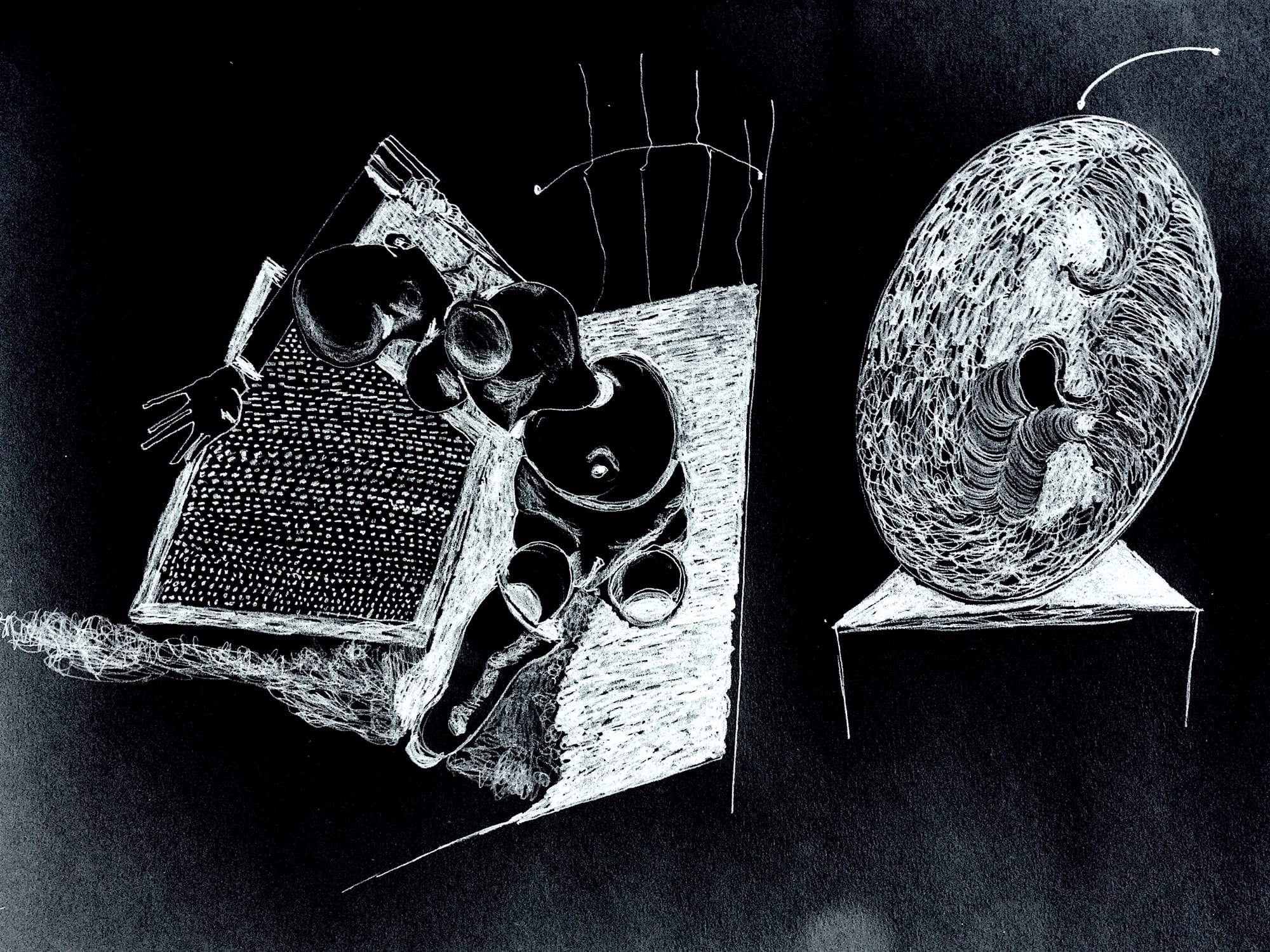
3:16: What is Freud’s negative critique of religion and does that exhaust what psychoanalysis can say about religion?
RG: Freud thought of religion as a set of wish-fulfilling fantasies. With these fantasies in place the world can become less frightening and lonely. I can pray and make sacrifices to the gods – and in this way hopefully avoid a fearful fate, crop failure, disease, etc. I may feel unloved – but now I can imagine an all-loving deity who loves me and thereby feel better. I’m terrified of dying – but now I’ve an afterlife to look forward to.
To the extent that psychoanalysis collapses into what Ricœur describes as a ‘hermeneutics of suspicion’, that may be all that it has to say about religion. However – and I’m now thinking of the work of John Cottingham in particular – it’s possible to bring psychoanalysis and religion into a far more friendly and fruitful relation than that. What I have in mind is how both stress the significance of how our capacity to understand and offer acknowledgement to certain matters radically depends on our state of mind.
It has been a popular Enlightenment consideration that our access to reality is best conducted in a non-emotional manner – and we can all think of times when ‘getting too emotional’ or ‘emotional reasoning’ are descriptions of that which interferes with our ability to track the truth. But much of what really matters in our lives is impossible to access or understand in an emotionally neutral state. Can you really grasp the significance of your friend’s betrayal unless you’re able to feel hurt and angry by it? Are you really able to acknowledge the true value of your beloved in your life unless you can put down your point-scoring, your resentments, your insecurities, and approach him with open-hearted love? The significance, for helping us stay alive to our own and others’ humanity, of love, hope, open-heartedness, generosity of spirit, forgiveness, and gratitude is treated of by both religion and psychoanalysis. Both operate with an ethic of truth as well; Christianity, for example, sees sin as a matter of ‘missing the mark’ or ‘error’, and psychoanalysis aims at emancipation through truthful understanding. And both develop practices to help us remain in touch with truth through becoming emotionally alive, rather than getting lost in our defences. Even if we don’t talk about it much, all know the huge personal significance of those moments when we lay down our defences, come back to the other in loving humility, when we own our bad, relinquish the splitting and projecting, own our dependency on and longing for the other, and are restored to our sense that loving and being loved are the most important things in our lives. In finding ways to articulate and hold onto such hard-won and hard-maintained understandings, religion and psychoanalysis are natural allies.
The following is a radical oversimplification, but there’s yet some truth in it: whereas Christianity has traditionally pursued contact with inner and outer reality through a path of humility, one that deprecates ego and narcissism, psychoanalysis has pursued contact with inner and outer reality through a path of assertion, one that deprecates superego and which encourages what it sees as a healthy narcissism. Even so, the facts are far more complex than this: there’s a lot of healthy assertiveness, including a confidence in one’s belovedness, in Christian thought - and there’s a valuable critique of narcissism in psychoanalysis. Historically matters were confused by Freud’s conflation both of conscience and the wellsprings of moral life (which the Christian sees as love) with the dictates of the superego (i.e. an internal critical voice). Luckily, though, we now have the work of astute scholars like Ilham Dilman, Donald Carveth and Joel Backström to help us avoid such muddled depictions of moral thinking.
3:16: You’ve commented on the Taylor vs Forstader legal decision. Was Taylor right, and do you think your psychoanalytic knowledge supplements your philosophical thinking in this case?
RG: Some background: Maya Forstater brought a case against the Centre for Global Development when it didn’t renew her contract. The CGD found her statements to the effect that women can’t actually change into men, and vice versa, to be ‘offensive and exclusionary’. To many people, however, they look like simple statements of fact, and changing the sex on one’s birth certificate is equally seen by many as productive of what’s called ‘legal fiction’ (which is not to disparage it). Judge Tayler found in favour of the CGD. He concluded ‘from … the totality of the evidence, that [Forstater] is absolutist in her view of sex and it is a core component of her belief that she will refer to a person by the sex she considered appropriate even if it violates their dignity and/or creates an intimidating, hostile, degrading, humiliating or offensive environment. The approach is not worthy of respect in a democratic society.’ The case gained quite a bit of media attention, fuelled by the incendiary mechanism of Twitter where (to borrow a psychoanalytic notion) words get used less as genuine communications and more as evacuations (i.e. as instances of splitting and forceful projection). The issue is particularly topical because it manifests a new and unexpected twist in the gender wars – not one between men and women, but between such feminists as stress the centrality, to being a woman, of reproduction, biology, etc., and those trans gender theorists who take either a more constructionist or a far more narrowly biological (i.e. principally a neurological) approach to gender identity.
Now, I’m no more qualified than any other reasonably educated person to make an intervention in this late-stage gender war – nor have I any dogs in that fight. I’ll say in passing that Tayler’s view that Forstater is ‘absolutist’ in her idea of sex (rather than acknowledging of biological anomalies) seems to me an irrelevance – and also to misunderstand the logic of biological categories. (Just because not everyone fits neatly into the category of ‘male’ or ‘female’ means neither that there are more than two sexes nor that men can change into women.) And I’ll leave aside the question of the accuracy of Tayler’s view that Forstater was intent on creating intimidating, hostile, degrading, humiliating or offensive atmospheres at work. (I saw nothing that I’d count as good evidence for that.) But what I do have a professional interest in is the topic of narcissism, and the spread – under the guise of liberal values – of perversely narcissistic presumptions in contemporary culture. And one of the manifestations of such narcissism is, as I see it, in the claim that others inexorably traduce your dignity when they hold an opinion about you which differs from your own self-conception and which makes you feel uncomfortable or fearful.
Now there clearly are aspects of our identity regarding which our sincere say-so ought to command respect. If I articulate my values, for example, then, whilst you may not respect them or me, it shows a moral failure in you if, in the absence of evidence of self-deception or confusion in me, you don’t take my sincere say-so as criterial for my having those very values. This is the case for performative utterances which create the state they declare (‘I do’ said in a marriage ceremony), and it’s also the case for such avowals as expressively manifest what they declare (‘I’m really fed up’). By not taking my words seriously here, you traduce my dignity – in effect seeing me as but a child who has not been adequately inaugurated into the culture. But when it comes to much of the rest of our discourse about ourselves, we’re as beholden there to intersubjective norms which transcend our subjective inclinations as we are when talking about impersonal matters. Sex, one might surely think, is one of those matters – i.e. it’s really not obvious that ‘self-identification’ has a role to play in its ascription. (Even gender is something for which, I’d say, self-identification only plays a small part.) Thus it’s not at all clear to me how Judge Tayler could confidently claim that Forstater’s philosophical views about sex traduced the dignity of trans individuals.
My own view is that those who identify as trans often have a really tough time of it. They are confused, at odds within themselves and between their inner feelings and outer reality. And as I see it this itself causes a significant dignity deficit for them. Many chose suicide, either before or after transitioning. We should surely do everything we can to be sensitive around people who suffer in this way, and this includes not poking at or exposing the dignity deficits they already suffer. But what I don’t believe is that anyone can ever damage or violate another’s dignity by stating facts about them. Now perhaps I’m wrong or even wrongheaded in my personal belief that trans individuals are not well considered literal exemplars of the sex with which they identify. Even so, what I thought interesting about the case was the way that Judge Tayler pre-judged this very issue when he claimed that Forstater’s opinions about the nature of sex violated the dignity of the trans individual. This seems to me to mistake dignity for some kind of subjective property we have – as if you assail my dignity just insofar as I’m in touch with a feeling of loss of dignity when engaging with you. This, as I see it, belongs fully to the rhetoric of the ‘you made me feel X’ crowd: a rhetoric which encourages us to lay the blame for feeling bad at the feet of those whose words put us in touch with our conflicts, shame, troubles, guilt, anxiety, etc. Furthermore it seems to me that it’s part of a narcissistic slide in our culture, one that elevates the rights of self-determination above the duties of accountability in our language use.
3:16: And finally for the readers here at 3:16, are there five books that will take us further into your philosophical world?
RG: The most important part of philosophy, as I see it, concerns method: i.e. the development of ways to un-muddle ourselves.
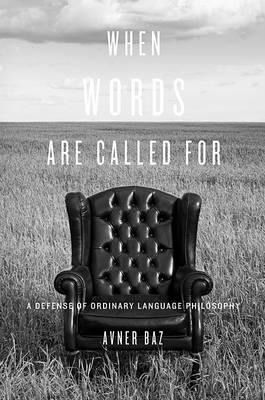
Two recent books that I found illuminating and careful in this regard are Avner Baz’s ‘When Words Are Called For: A Defense of Ordinary Language Philosophy’
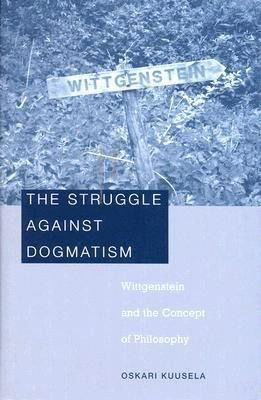
and Oskari Kuusela’s ‘The Struggle Against Dogmatism: Wittgenstein and the Concept of Philosophy’.
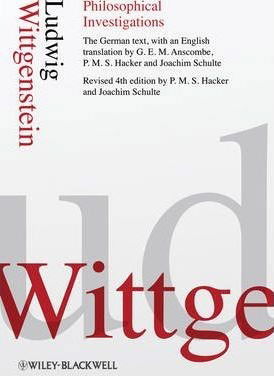
Of Wittgenstein’s own books I really recommend his ‘Philosophical Investigations’.
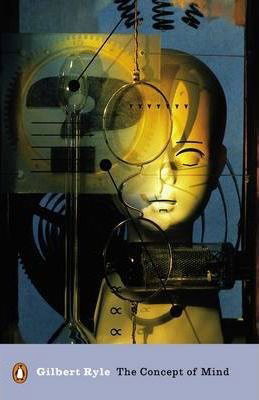
I already mentioned above what’s an under-rated classic by a contemporary of his, Gilbert Ryle: ‘The Concept of Mind’.
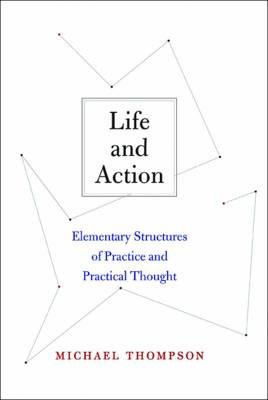
Finally I’d really like to recommend the book I’m reading at the moment: a truly individual and fresh philosophical work by Michael Thompson on ‘Life and Action: Elementary Structures of Practice and Practical Thought’.
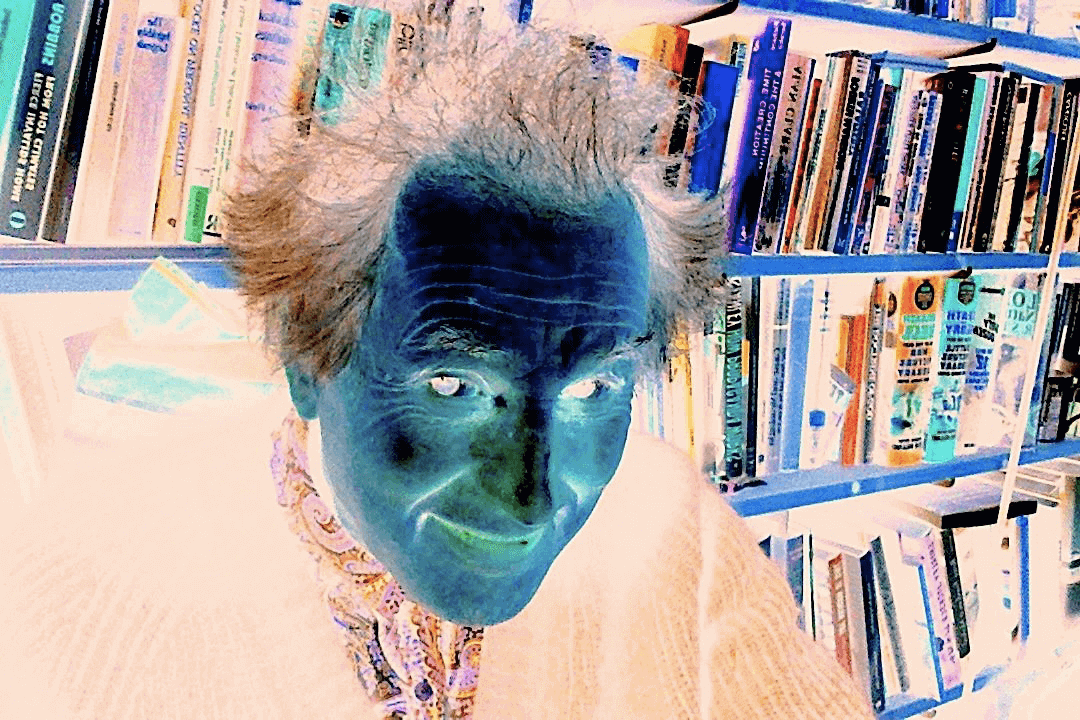
ABOUT THE INTERVIEWER
Richard Marshall is biding his time.
Buy his second book here or his first book here to keep him biding!
End Times Series: the index of interviewees
End Time series: the themes